Archaeology & History
Artifacts From a Bronze Age Settlement Dubbed ‘Britain’s Pompeii’ Go on View
Must Farm was occupied for less than a year before it was destroyed by fire.
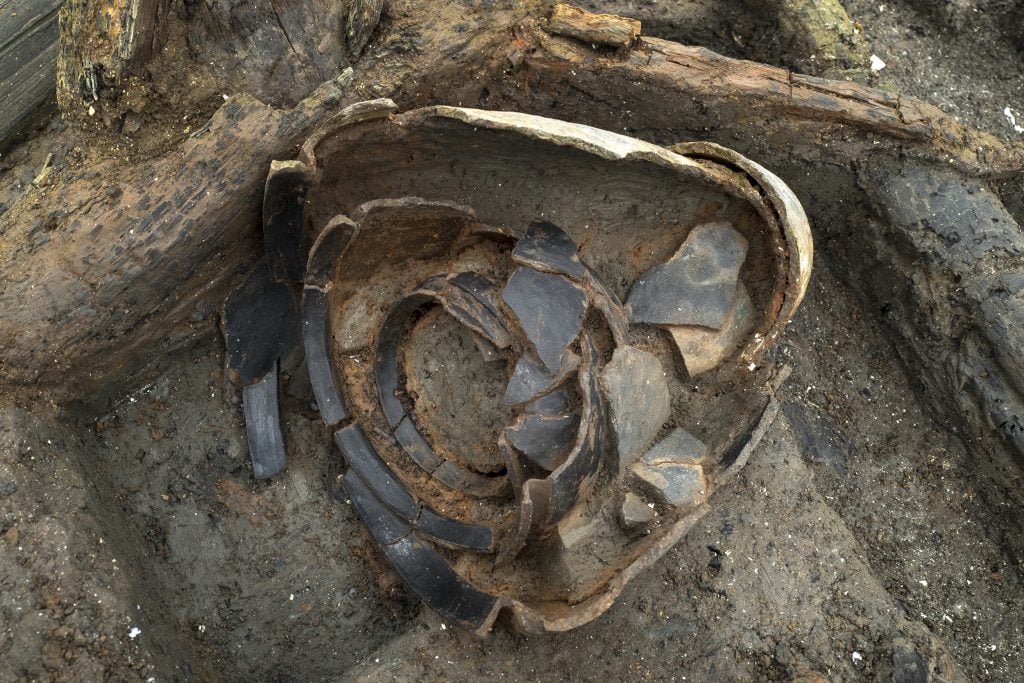
A new exhibition at the Peterborough Museum and Art Gallery in the U.K. is offering a rare glimpse into the everyday lives of residents of a Bronze Age settlement.
Must Farm is a recently discovered colony in Cambridgeshire, dating to around 950 B.C.E. and described as an “archaeological nirvana” by experts at the Cambridge Archaeological Unit, which excavated it in 2016. Evidence indicates that the settlement had only been occupied for less than a year before it was destroyed by fire. Though fire experts investigated the site, the source of the conflagration could not be determined. The oxygen-starved conditions of the wetland it was found in preserved many of the site’s contents, earning it the moniker of “Britain’s Pompeii,” a reference to the Italian city that was sealed under volcanic debris from the eruption of Vesuvius in 79 C.E.
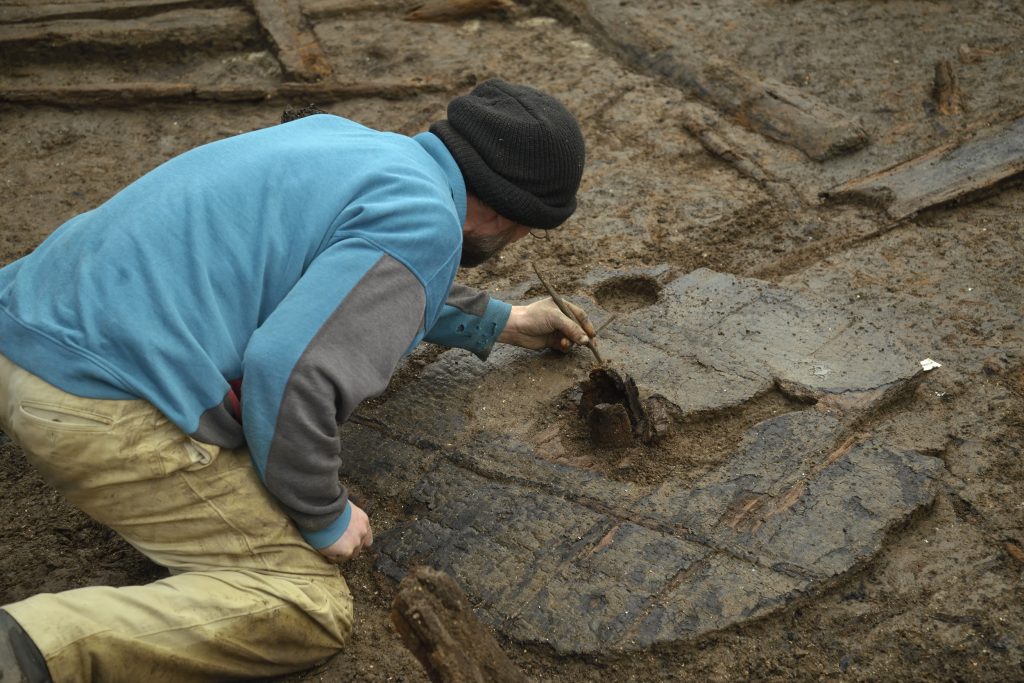
Excavations at Must Farm. Photo: Cambridge Archaeological Unit.
“Introducing Must Farm, a Bronze Age Settlement” is a time capsule that brings together the largest collection of Bronze Age relics ever discovered in the U.K. Among them are striking beads made from glass, siltstone, amber, and shale, thought to be the centerpiece of a necklace. Some of the beads are believed to have been made in the Middle East, created with an uncommon level of sophistication for the Bronze Age.
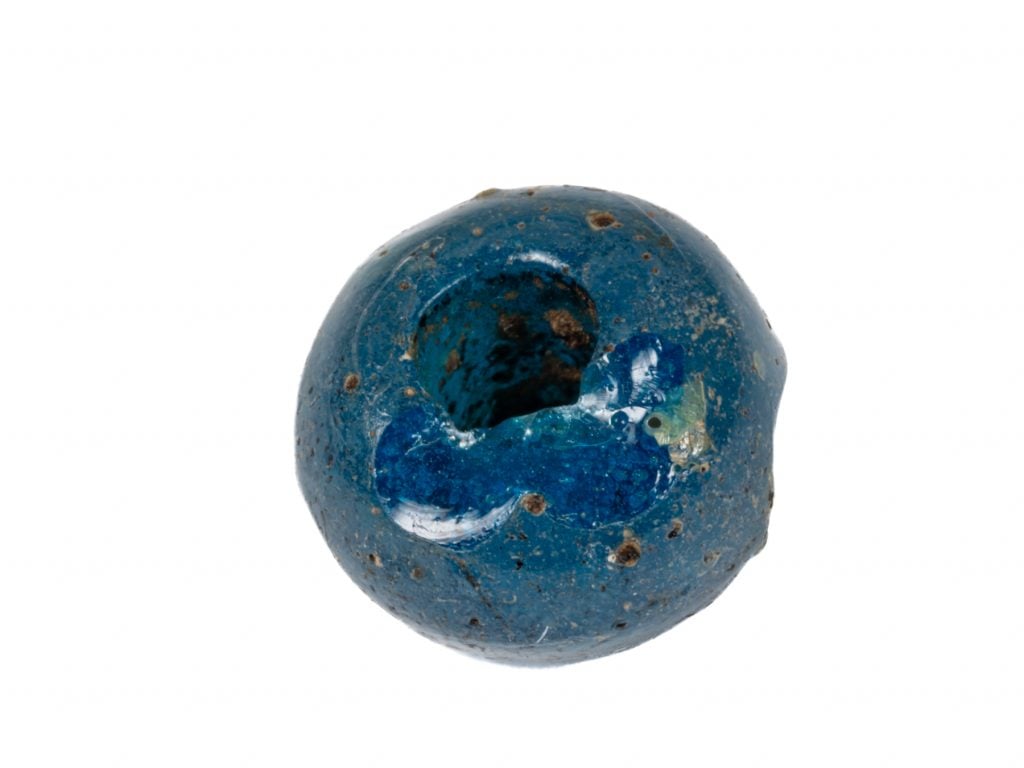
A striking blue glass bead is among the jewelry found at the settlements. Some of the beads displayed an uncommon level of sophistication for the Bronze Age. Photo: Peterborough Museum & Art Gallery.
Objects relating to textile production feature heavily among the uncovered artifacts. More than 36 spools, some with their threads still wound and intact, have been unearthed at Must Farm, as well as a number of twined objects. Twining is a weaving technique used to embellish textiles with textures, while also strengthening fabrics.
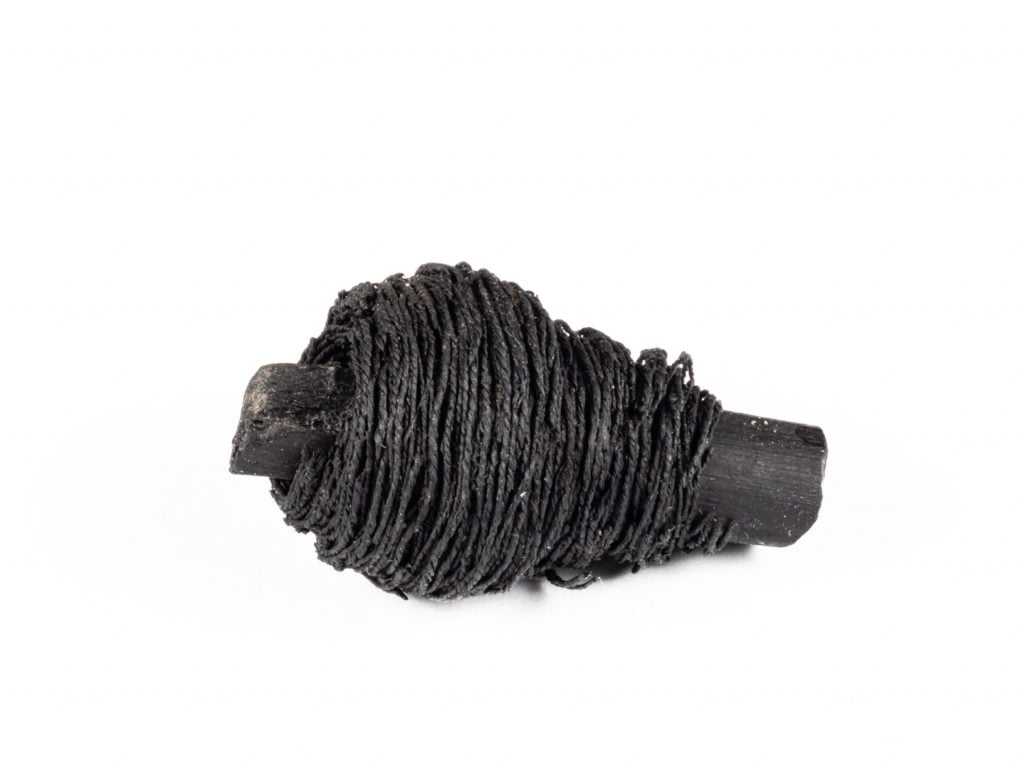
Over 36 dowels or bobbins were found, some with the thread still intact and wound. Photo: Peterborough Museum & Art Gallery.
Scientists even discovered incredibly well preserved food platters at the site. The food residue remaining on the dishes was analyzed, giving experts the opportunity to understand the diet of Must Farm’s inhabitants. Most of the discovered wooden platters were made of alder wood, a hardwood still used in furniture-making today. Other platters were made of willow and oak wood.
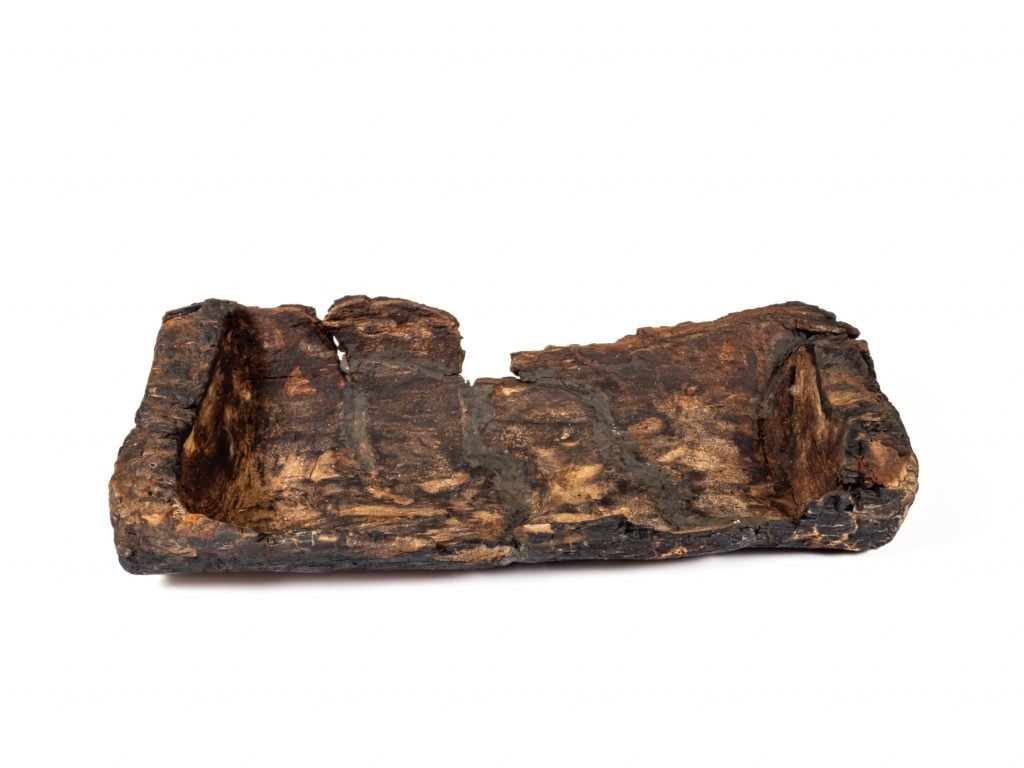
Wooden food platters were discovered with food reside still on them, giving researches insight into the Must Farm’s inhabitants’ diets. Photo: Peterborough Museum & Art Gallery.
“Usually, at a later Bronze Age period site you get pits, post-holes and maybe one or two really exciting metal finds,” said David Gibson, archaeological manager of the Cambridge Archaeological Unit. “But this time so much more has been preserved—we can actually see everyday life during the Bronze Age in the round.”
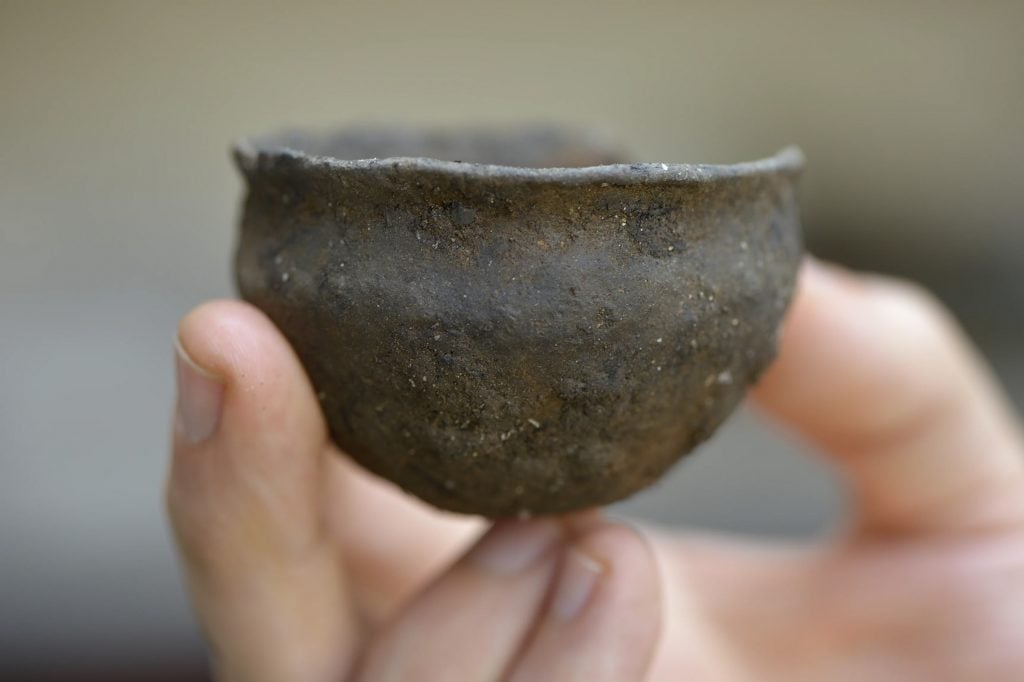
Excavations at Must Farm. Photo: Cambridge Archaeological Unit.
The exhibition will further explore the Cambridge Archaeological Unit’s excavation and the stories that have emerged from the team’s research. It will be accompanied by a pair of publications from the McDonald Institute for Archaeological Research, which compiles scientific insights and studies into the prehistoric site.
“Introducing Must Farm, a Bronze Age Settlement” is on view at the Peterborough Museum and Art Gallery, 51 Priestgate, Peterborough, the U.K., through September 28.





